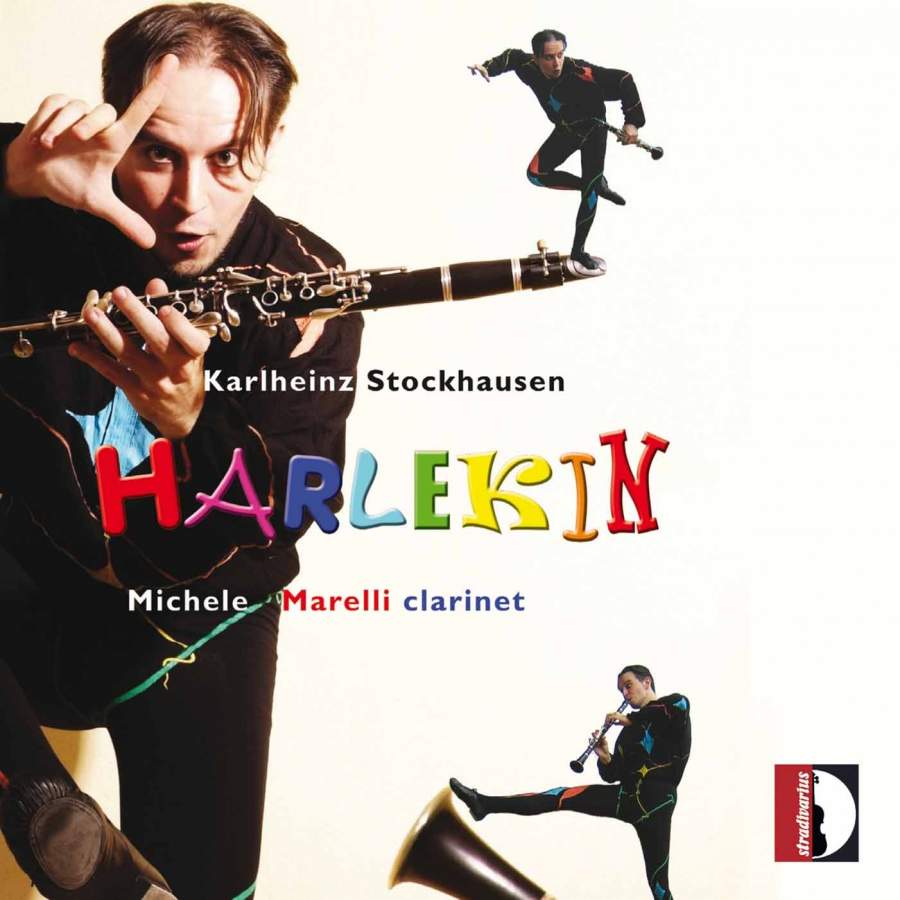Logowanie
Dziś nikt już tak genialnie nie jazzuje!
Bobby Hutcherson, Joe Sample
San Francisco
SHM-CD/SACD - NOWY FORMAT - DŻWIĘK TAK CZYSTY, JAK Z CZASU WIELKIEGO WYBUCHU!
Wayne Shorter, Freddie Hubbard, Herbie Hancock, Ron Carter, Elvin Jones
Speak no evil
UHQCD - dotknij Oryginału - MQA (Master Quality Authenticated)
Chesky! Niezmiennie perfekcyjny
Winylowy niezbędnik
ClearAudio
Double Matrix Professional - Sonic
najbardziej inteligentna i skuteczna pralka do płyt winylowych wszelkiego typu - całkowicie automatyczna
STOCKHAUSEN, Michele Marelli
Harlekin
- Karlheinz Stockhausen (1928-2007):
- Harlekin, para clarinete (1975)
- 1. Der Traumbote (il messaggero di sogno)
- 2. Der spielerische Konstrukteur (il costruttore giocoso)
- 3. Der verliebte Lyriker (il lirico innamorato)
- 4. Der pedantische Lehrer (l’insegnante pedante)
- 5. Der spitzbübische Joker (il buffone burlone)
- 6. Der leidenschaftliche Tänzer
- 7. Dialog mit einem Fuss (dialogo con un piede)
- 8. Harlekin’s Tanz (danza di Arlecchino)
- 9. Der exaltierte Kreiselgeist (l’esaltato spirito rotante)
- 1 CD - DDD - 42'49''
- Michele Marelli - clarinet
- STOCKHAUSEN
Harlekin (1975) is one of the best known and most appreciated of Karlheinz Stockhausen‘s works for the originality of its mise-en-scène and mode of composition: the clarinettist, in fact, plays, mimes and dances contemporaneously. Stockhausen developed the concept of the composition for Formulas already tried, in, among others, Mantra (1970) and Inori (1972). The Formula, the extreme evolution of the post-Webernian series, is a collection of notes, dynamics, rhythms and detailed phrasing connected, by close internal bonds balanced by precise mathematical calculations. Stockhausen’s Harlequin no longer possesses almost anything of the mask of the commedia dell’arte: the character that we see on stage does not express himself through the word but through music and body language. The pantomime, in its entirety, becomes an abstract representation of man’s life. The Formula of Harlekin consists of 13 sounds which evolve and are modified, in the space of 43 minutes, through seven sections, to which Stockhausen gives an exact title. Michele Marelli (1978) is internationally recognised as one of the finest contemporary musicians of his generation. He collaborated with Karlheinz Stockhausen for more than 10 years, giving premières under his conductorship and recording 2 CDs with the Maestro himself. He has been Winner of the Stockhausen Stiftung für Musik (six times) and numerous other international awards; he collaborates, as clarinet and basset horn soloist, with the Ensemble Stockhausen and is assistant to Suzanne Stephens at Stockhausen Kurse Kürten. Harlekin was the last work prepared with the Maestro before his passing.


































